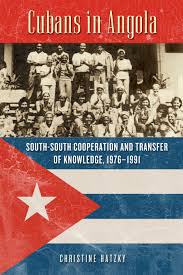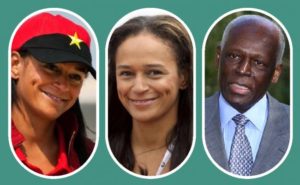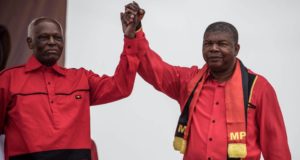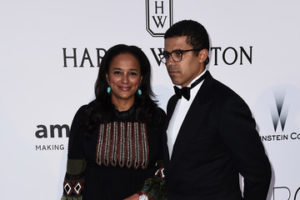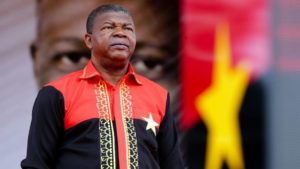THOUSANDS OF CUBANS DEAD IN ANGOLA. IT WAS WORTH IT?. ANGOLA TODAY.
Cuba became militarily involved so that the MPLA Marxists managed to install their government in Luanda, but had to remain there for more than a decade to shore it up.
According to official figures that are considered conservative, two thousand Cubans died in Angola. His remains were repatriated in December 1989.
Many of the veterans returned mutilated, their nerves destroyed and victims of strange pathologies to a country that was entering the worst crisis of its history. A hard reality that did not reflect the official panegíricos.
Weapons and logistics were laid by the Soviet Union. The Cubans put the cannon fodder. In a few months, Cuba totaled some 70,000 soldiers in Angola. After the initial danger, the figure stabilized at about 40 000.
ANGOLA TODAY.
These astronomical figures contrast radically with the reality of today’s Angola, a country where inequality is written in capital letters and two-thirds of its population live on less than US $ 2 a day.
The country experienced great growth in recent years thanks to the sale of oil, which is almost its only source of income, but that benefited only a small elite of society. We mention that the price of oil has reached less than $ 40.00 a barrel in recent times.
According to Transparency International, there are only 12 countries in the world that are more corrupt than Angola (164 out of 176 countries analyzed).
Isabel Dos Santos, The Queen of Oil
Due to this country’s heavy reliance on oil, the decision by Eduardo dos Santos, an outgoing president of Angola, to name his daughter, the now-millionaire Isabel Dos Santos, chairman of the board of state oil company Sonangol, caused great controversy. last year.
Isabel dos Santos was born in Baku, Azerbaijan, URSS, the eldest daughter of the Angolan president, José Eduardo dos Santos, and his first wife, the Russian Tatiana Kukanova, whom he met while studying in Azerbaijan. His father’s parents came from Sao Tome and Principe. He studied electrical engineering at King’s College in London. There she met her husband from Zaire (now the Democratic Republic of Congo), Sindika Dokolo, the son of a millionaire from Kinshasa and his Danish wife.
Isabel dos Santos is an Angolan businesswoman considered by Forbes as the richest woman in Africa. By 2013, according to Forbes’ research, her net worth had reached more than $ 3 billion, making her the first multimillion-dollar woman in Africa. An article in Forbes magazine described in 2013 how Isabel dos Santos acquired her wealth by taking stakes in companies doing business in Angola, suggesting that her wealth comes almost completely from the power and connections of her family. In November 2015, the BBC named Isabel dos Santos as one of the 100 most influential women in the world.
“Aside from the presidency … this is the most powerful position in the country,” Angola’s analyst Aslak Orre told the BBC. Although a group of lawyers denounced this appointment, the Supreme Court of the country considered it finally legal.
But the businesswoman, popularly known as “The Princess”, has always denied that her family had anything to do with her professional successes.
Some of the possessions of Isabel dos Santos:
3.5 billion US dollars of total assets.
Energy: President of the Board of Directors of Sonangol, state oil company. 6% of oil and gas company Galp Energia (Portugal).
Banking: 42% of Banco BIC (Angola) and 19% of Banco BPI (Portugal).
Telephony: 25% of Unitel, the main mobile operator in Angola.
Communication: Owner of Cable TV Zap (Angola) and shareholder of Nos SGPS (Portugal),
Today, Angola, despite oil and diamonds, remains one of the poorest countries in the world. The life expectancy of its inhabitants is one of the lowest in the African continent.
The Angolan constitution has been modified 5 times. Angola abjured of the Marxism and embraced the multipartidismo and the market economy. His government, even presided over by Dos Santos, Neto’s replacement with MPLA, is one of the most corrupt in Africa.
Result of presidential elections in Angola 2017
(Preliminary results as of August 24)
64.57% João Lourenço (MPLA) – New President Elected.
24.4% Isaias Samakuva (UNITA)
8,5% Abel Chivukuvuku (CASA-CE)
1.37% Benedito Daniel (PRS)
0.95% Lucas Ngonda (FNLA)
(Source: National Electoral Commission)
The Intervention of Cuba in Angola since 1975 made clear the reality that a country of the Third World had never undertaken such a military effort.
During the war in Angola the weapons and logistics were put by the Soviet Union. The Cubans put the cannon fodder. In a few months, Cuba totaled some 70,000 soldiers in Angola. After the initial danger, the figure stabilized at about 40 000.
According to official figures that are considered conservative, two thousand Cubans died in Angola. His remains were repatriated in December 1989.
Many of the veterans returned mutilated, their nerves destroyed and victims of strange pathologies to a country that was entering the worst crisis of its history. A hard reality that did not reflect the official panegíricos. Today we all ask ourselves repeatedly.
Was the death of thousands of Cubans worth it?
MILES DE CUBANOS MUERTOS EN ANGOLA. VALIÓ LA PENA?. ANGOLA HOY.
Cuba se involucró militarmente para que los marxistas del MPLA lograran instalar su gobierno en Luanda, pero tuvo que permanecer allí durante más de una década para apuntalarlo.
Según cifras oficiales que son consideradas bien conservadoras, dos mil cubanos murieron en Angola. Sus restos fueron repatriados en diciembre de 1989.
Muchos de los veteranos regresaron mutilados, con los nervios destrozados y víctimas de extrañas patologías a un país que se adentraba en la peor crisis de su historia. Una dura realidad que no reflejaron los panegíricos oficiales.
Las armas y la logística fueron puestos por la Unión Soviética. Los cubanos pusieron la carne de cañón. En pocos meses, Cuba llegó a totalizar alrededor de 70 000 soldados en Angola. Pasado el peligro inicial, la cifra se estabilizó en unos 40 000.
ANGOLA HOY.
Estas cifras astronómicas contrastan de manera radical con la realidad de Angola de hoy, un país donde la desigualdad se escribe con mayúsculas y dos tercios de su población viven con menos de US$2 al día.
El país experimentó un gran crecimiento en los últimos años gracias a la venta de petróleo, que es casi su única fuente de ingresos, pero eso benefició solo a una élite reducida de la sociedad. Hacemos mencion que el precio del petroleo ha llegado a valer menos de $40.00 el barril en ultimos tiempos.
Según la organización Transparencia Internacional, solo hay en el mundo 12 países más corruptos que Angola (puesto 164 de 176 países analizados).
Isabel Dos Santos, La Reina del petróleo
Debido a esta gran dependencia del país respecto al petróleo, la decisión de Eduardo Dos Santos, presidente saliente de Angola, de nombrar a su hija, la ahora millonaria Isabel Dos Santos, presidenta del consejo de administración de la petrolera estatal Sonangol causó gran polémica el año pasado.
Isabel dos Santos nació en Bakú, Azerbaiyán, URSS, la hija mayor del presidente de Angola, José Eduardo dos Santos, y su primera esposa, la rusa Tatiana Kukanova, a la que conoció mientras estudiaba en Azerbaiyán. Los padres de su padre procedían de Santo Tomé y Príncipe. Estudió ingeniería eléctrica en el King’s College de Londres. Allí conoció a su marido del Zaire (ahora República Democrática del Congo), Sindika Dokolo, hijo de un millonario de Kinshasa y su esposa danesa.
Isabel dos Santos es una empresaria angoleña considerada por Forbes como la mujer más rica de África. En 2013, según la investigación de Forbes, su patrimonio neto había alcanzado más de tres mil millones de dólares, lo que la convirtió en la primera mujer multimillonaria de África. Un artículo de la revista Forbes describió en 2013 cómo Isabel dos Santos adquirió su riqueza al tomar participaciones en empresas que hacen negocios en Angola, lo que sugiere que su riqueza viene casi Completamente del poder y las conexiones de su familia. En noviembre de 2015, la BBC nombró a Isabel dos Santos como una de las 100 mujeres más influyentes del mundo.
“Junto a la presidencia… esta es la posición más poderosa del país”, le dijo a la BBC el analista especialista en Angola, Aslak Orre. Aunque un grupo de abogados denunció este nombramiento, el Tribunal Supremo del país la consideró finalmente legal.
Pero la empresaria, conocida popularmente con el sobrenombre de “La Princesa”, siempre negó que su familia tuviera algo que ver en sus éxitos profesionales.
Algunas de las posesiones de Isabel dos Santos:
3.500 millones de US$ de patrimonio total.
Energía: Presidenta del Consejo de Administración de Sonangol, petrolera estatal. 6% de la empresa de petróleo y gas Galp Energia (Portugal).
Banca: 42% de Banco BIC (Angola) y 19% de Banco BPI (Portugal).
Telefonía: 25% de Unitel, principal operadora móvil de Angola.
Comunicación: Propietaria de la TV por cable Zap (Angola) y accionista de Nos SGPS (Portugal),
Hoy, Angola, a pesar del petróleo y los diamantes, sigue siendo uno de los países más pobres del mundo. La esperanza de vida de sus habitantes es una de las más bajas del continente africano.
La constitución angolana ha sido modificada 5 veces. Angola abjuró del marxismo y abrazó el multipartidismo y la economía de mercado. Su gobierno, aun presidido por Dos Santos, el sustituto de Neto al frente del MPLA, es uno de los más corruptos de África.
Resultado de elecciones presidenciales en Angola 2017
(Resultados preliminares a 24 de agosto)
64,57% João Lourenço (MPLA) -Nuevo Presidente Electo-
24,4% Isaias Samakuva (UNITA)
8,5% Abel Chivukuvuku (CASA-CE)
1,37% Benedito Daniel (PRS)
0,95% Lucas Ngonda (FNLA)
(Fuente: Comisión Nacional Electoral)
La Intervencion de Cuba en Angola desde 1975 hizo notar la realidad que jamás un país del Tercer Mundo había emprendido un empeño militar de tal envergadura.
Durante la guerra en Angola las armas y la logística fueron puestos por la Unión Soviética. Los cubanos pusieron la carne de cañón. En pocos meses, Cuba llegó a totalizar alrededor de 70 000 soldados en Angola. Pasado el peligro inicial, la cifra se estabilizó en unos 40 000.
Según cifras oficiales que son consideradas bien conservadoras, dos mil cubanos murieron en Angola. Sus restos fueron repatriados en diciembre de 1989.
Muchos de los veteranos regresaron mutilados, con los nervios destrozados y víctimas de extrañas patologías a un país que se adentraba en la peor crisis de su historia. Una dura realidad que no reflejaron los panegíricos oficiales. Hoy todos nos preguntamos repetidamente.
¿Valió la pena la muerte de miles de cubanos?
Agencies/Wiki/BBC/Various/Internet Photos/Arnoldo Varona/TheCubanHistory.com
THE CUBAN HISTORY, HOLLYWOOD.



